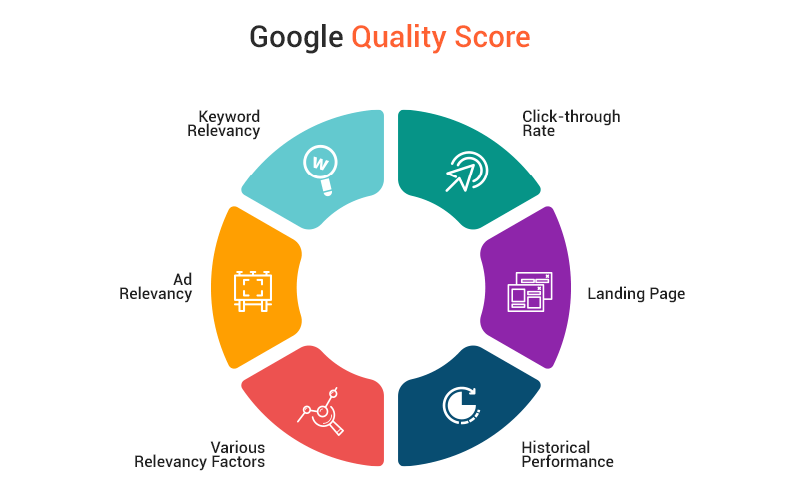Last Updated on 8 Oct 2024 by NS
Understanding Google’s Quality Score: A Guide for Advertisers
In the realm of digital advertising, Google’s Quality Score plays a crucial role in determining the success of your campaigns. This metric, recalculated every time a search is conducted, influences several key aspects of your ad performance, including ad auction eligibility, cost-per-click (CPC), first-page bid estimates, and ad positioning. Understanding how Quality Score works and how to improve it can significantly impact your advertising effectiveness and cost efficiency.
What is Google’s Quality Score?
Google defines Quality Score as an estimate of how relevant your ads, keywords, and landing pages are to users. A higher Quality Score indicates that Google’s systems find your content relevant and useful to users, while a lower score suggests that there is room for improvement in making your content align better with user expectations and queries.
Key Factors Influencing Quality Score
- Relevance of Keywords: According to Google’s Tanmay Arora, the relevance of a keyword is not solely determined by its presence on the landing page or its frequency of use. Instead, it hinges on how users perceive the relevance, primarily gauged by the click-through rate (CTR) of the ad. This perspective shifts the focus from mere keyword density to user engagement.
- Historical Performance: Newly added keywords initially receive a Quality Score based on their past performance on Google.com. Over time, as these keywords accrue data, their scores are adjusted to reflect recent performance. This process is gradual, ensuring that the Quality Score is a reliable indicator of ongoing relevance.
- Exact Match CTR: Another critical component is the exact match CTR of a keyword, which measures how often an ad is clicked when the search term exactly matches the keyword. This metric provides a more precise indication of keyword effectiveness. For instance, the keyword “red shoes” will have a higher exact match CTR if it triggers ads specifically for searches like “red shoes” rather than broader or loosely related terms.
Why Quality Score Matters
Quality Score is more than just a number; it directly impacts your ad costs and visibility. Higher scores generally lead to lower CPCs and better ad positions, making your advertising budget more efficient. This efficiency arises because Google rewards relevant ads that enhance user experience, aligning with their broader goal of delivering valuable and pertinent search results.
Improving Your Quality Score
To improve your Quality Score, consider the following strategies:
- Optimize Ad Relevance: Ensure your ads closely match the search terms and the user’s intent. Use specific and relevant keywords in your ad text and landing pages.
- Enhance Landing Page Quality: Your landing page should offer a seamless and relevant experience for users. It should be directly related to the ad content and keywords and should be easy to navigate.
- Boost Click-Through Rate (CTR): Create compelling ad copy with strong calls-to-action. Test multiple ad variations to identify what resonates most with your audience.
- Organize Campaign Structure: Use well-organized ad groups with tightly themed keywords. This approach helps in creating more relevant ads for each group, enhancing overall relevance and CTR.
- Leverage Geographic Performance: If your business serves specific locations, tailor your ads and keywords to reflect this. Geographic relevance can significantly boost your Quality Score.
Final Thoughts
Google’s Chief Economist Hal Varian emphasizes the importance of Quality Score in creating a positive user experience, which ultimately benefits advertisers through better ad placement and reduced costs. By focusing on relevance, user engagement, and continuous optimization, advertisers can leverage Quality Score to improve their campaign performance significantly.
In conclusion, while Quality Score is just one part of the advertising equation, it is a critical metric that influences the efficiency and success of your campaigns. Understanding and optimizing for it can lead to more cost-effective and impactful advertising efforts. Google Ads Campaigns provide businesses with valuable data about their audience, allowing them to refine targeting and improve the effectiveness of future marketing efforts.

